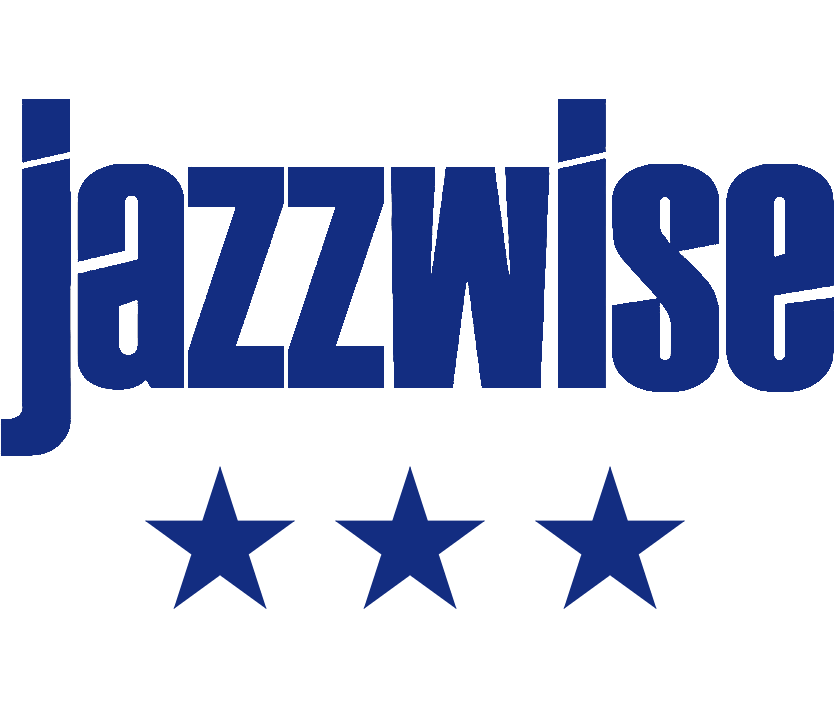Dresch Quartet, Archie Shepp Hungarian Bebop
Dresch's music touches on both areas using Afro and Euro-American idioms, also incorporating their own folk traditions. Within the area of instrumental music it's rather like what the Beatles were able to do using Negro-blues to create a new form. What we did was combine Hungarian folk and European academic music with afro-jazz elements in a way that really swings. The overall feeling of the recording is nice and fresh.
Archie Shepp
Artists
Archie Shepp - soprano and tenor sax, piano (4)
Mihály Dresch - soprano and tenor sax
Ferenc Kovács - violin
Mátyás Szandai - double bass
István Baló - drums (Dubán drums – model Baló)
Featuring:
Kálmán Balogh - cimbalom (5)
About the album
All compositions by Mihály Dresch except (4) by Archie Shepp
Recorded at the Roxound Studio, Budapest
Sound engineer: Péter Glaser
Mixed and mastered by Péter Erdélyi
Cover and portrait photos: István Huszti
Inside cover photo: Johann Sebastian Hanel
Design: Meral Yasar
Architect: Bachman
Produced by László Gőz
The recording was sponsored by the Ministry of Cultural Heritage, the National Cultural Fund of Hungary and Artisjus Musical Foundation
Special thanks to Carol Cass, Péter Pallai, János Winkler and Zsolt Oravecz.
Reviews
Rick Anderson - allMusic *** (en)
John Fordham - Guardian (en)
Mike Hobart - Jazzwise (en)
Ken Waxman - Jazzword (en)
Larry Appelbaum - JazzTimes (en)
Steve Anthony - Budapest Business Journal (en)
Vincent Bessières - Jazzman (fr)
Guillaume Grisli Belhomme - dMute.net (fr)
Martin Ellenbruch - My Way (de)
Guido Festinese - World Music Magazine - World Top CD (it)
g.fe. - Il Manifesto (it)
F.G. - Diverdi (es)
thÖmasavant - Tomajazz.com (es)
R.-J.P.J. - Ritmo (es)
Federico González - El Pais (es)
Lukasz Grzymisławski - Gazeta Wyborcza (pl)
Wawrzyniec Mąkinia - Audiovideo - płyty miesiaça ***** (pl)
Nemes Nagy Péter - HangÁsz - Rockinform (hu)
Czabán Gy. Hurka - Magyar Narancs (hu)
Currently out of stock.
Dresch Quartet, Archie Shepp: Hungarian Bebop
The album is available in digital form at our retail partners
Archie Shepp
“Every musician has the capacity to be revolutionary; to swing a door open in man at every appearance.”
Mihály Dresch
Mihály Dresch Quartet | Archie Shepp
Hungarian bebop
I was a very young man when I first came to Eastern Europe, but back then I didn't have a chance to visit Hungary. I'm very glad that when I did come Hungary had become a free country. The people are very kind and Budapest is, as they say, one of Europe's most beautiful cities.
I was equally impressed with Hungarian music and the fine local musicians. I think the Hungarians have a real solid basis for growth in "so called" jazz music, because they have very good music schools. I visited the Jazz Department of the Academy of Music, and I am sure that those young people are playing very well; they are getting good instructions from their teachers.
It was a special experience for me to be able to play with some very accomplished, creative musicians, like Misi (Mihály Dresch) the saxophonist and his partners. The use of the violin was particularly interesting for me. Duke Ellington has also used this instrument successfully for example in his sacred works. Ferenc Kovács has a fine touch on the violin, he did a very good job on my song Steam, and I found him a truly original player.
I really didn't get the feeling that Misi and the others expected me to do a lot of adapting while we were recording the material. I think one reason they asked me was because they are familiar with my work, so basically I just played the way I normally do. Probably the only time I had to adapt was for the track with the cimbalom.
I would have liked to hear more of the traditional side of Hungarian music during my stay. The gypsies, for example, play very original music. I picked up some recordings which I look forward to studying in more detail.
It's natural that the first encounter is rather an excitement when two artists, musicians get together. The next time you're more relaxed and when you get to do your thing your perspective is more objective. You're not competing, you're really able to hear the other guy and yourself, and you are not trying to prove anything. It's like the opening night in the theatre; you put your heart and soul into it. The next night you do the same thing, but there is a little less excitement, more perception, so all the things begin to come together. This is what happened at the recording itself: the first day for me was very exciting, but as the days went on I was much more reflective. Things got better and better, I got to know everybody, I wasn't trying so hard, I knew what I wanted to do. That's how music is.
Because of the evolution of music it's quite possible now to merge Afro-American and European musical elements, and come up with something that is a third stream. But in this case the music is not so extreme at all, in fact I find much of it on the traditional side, certainly on the edge of tradition. Although it has a new age approach, it's not new age music, because this music really has a strong basis in swing and rhythm. Dresch's music touches on both areas using Afro and Euro-American idioms, also incorporating their own folk traditions. Within the area of instrumental music it's rather like what the Beatles were able to do using Negro-blues to create a new form. What we did was combine Hungarian folk and European academic music with afro-jazz elements in a way that really swings. The overall feeling of the recording is nice and fresh.
I think that music has social and cultural implications beyond the practical expression of music itself. In my compositions, performance, essays, articles for magazines and interactions with other musicians I've always considered myself as a kind of force for change. I hope that I leave people with some knowledge that they didn't have when we first met. I tend to agree with Misi's concept that music brings people together in their search for universal dignity, expressing mankind's search for a better life in a better world.
Archie Shepp
"As a matter of fact, it was only at the second concert that I came to realize I was playing with the old maestro with the hat; that's when I really felt it... Of course, every minute had been a real experience up to then, imagine, you look up in the studio and see Archie Shepp playing by your side... But then at the concert I was suddenly overwhelmed by a sense of relief: I no longer felt I had to measure up to expectations, and from that moment we really started to play together - that was the climax.
Before going on stage, when we were sitting in the dressing room, the guys called me to come and play with another group within the festival. I told them that normally of course I'd go, but this was an unrepeatable moment, to sit there with the great master while he puffed on his small pipe, sharing his tranquillity... I was granted fifteen minutes of an irreplaceable experience, then it came to an end, and fortunately for the band, they didn't have to wait longer.
As for Archie, I felt that he, too, opened up after the first concert: he became more informal and friendly, instead of merely being polite. It took us a few days to get closer to each other, but thereafter he called me Misi and that meant a great deal to me - I never dreamed of being on such good terms with him.
The musical side of our relationship also developed wonderfully: all the inherent possibilities in our co-operation were fully realised. It was a great honour that Archie Shepp was willing to play our compositions, for we did not play standards. We saw no reason to do so - he could have found much more suitable musicians for that. As he said himself: "this is what makes it different from my other records".
We play other kinds of music as well, but I deliberately selected pieces that are deeply rooted in jazz, in which I could envisage Archie. Instead of trying to force our special world onto him, we wanted him to be entirely himself. We started playing these numbers and, in most cases, he said OK right away. After a few run-ups he made them his own, didn't even "touch" them. The best example of this is Sorrow, sorrow. He listened to it once, we played it together once and then recorded it and that was that. We did not press for another take, we felt it was perfect. It is a relatively simple piece, without special turns, but nevertheless this is what gave him a real feel for the Eastern European tradition. When we told him about the beautiful metaphor in the text - "had I remained in bud" -, so akin to the basic mood of the blues, Archie laughed and said yes, with the difference that a black man would have added "but I was born, damn it".
He requested minor changes once or twice only, strove to adapt, identify himself with everything throughout. Incidentally, as with Hungarian musicians, Archie Shepp often plays melodies superimposed on rhythm; this is what makes his performance so spacious. Our folk musicians also often play with the tempo in parlando- fashion, less strict and somewhat rubato-like: this suited me well. I have been listening to him since I was 18, and I have always loved his music. I have not imitated him, but he has influenced me, and it is a special pleasure that we played one of his own compositions, Steam, in an unusual arrangement, with the violin carrying the main theme, while he himself played the piano.
The old man is a great musician, one of the greatest; I have always ranked him among the first. I have always considered his attitude toward his roots, to which he owes the dignity so typical of his performance, exemplary. The only musician in Hungary in whom I can recognize the same attitude and consistency is György Szabados. Archie's personality has an incredible emanation; he does not simply "play music", but represents something while playing, something that makes you aware of your human spirit - that you were born free and if you are worthy, you can create and achieve wonderful things. I know of few other musicians whose performance releases this sort of power. There is energy in rock music as well, but it is powerful in a different way: Archie's every gesture has a universal connotation.
As Archie himself said in reference to the word "revolution" which recurs in his piece Mama Rose: every person is born a revolutionary, the question is when will he knuckle under and sink into mediocrity. I agree that the miracle of living a full and true life is inherent in every child, and similarly, every musician has the capacity to be revolutionary, to swing a door open in man at every appearance. This is what music is about ... and, well, about love, and this can be felt when Archie Shepp plays. In each of his solos there are moments when he takes this direction. He is never led by esthetic motives, he considers every sound legitimate - in Sorrow, sorrow for example, he bellows like a wounded animal.
I saw the sparkle in his eyes when he realized that our music also has strength, that it has its roots and derives from fate, emotion, life, and generations - our history. We also have our traditions, a source to tap, while trying to thread our own way, which is of course difficult to realize.
Imitation is inevitable; Archie himself told us that he tried unsuccessfully to imitate Coltrane's sound at the beginning of his career, before finding his own voice. At the Jazz Faculty, I also started out learning Coltrane solos, but I never wanted to copy anyone's music. Artists must find the music that suits them perfectly, that is capable of inspiring them, for only then, when things are in their proper place, can authentic works be created.
Archie Shepp has found his music - that, amongst other reasons is what makes every one of his pieces so well-rounded."
Mihály Dresch


